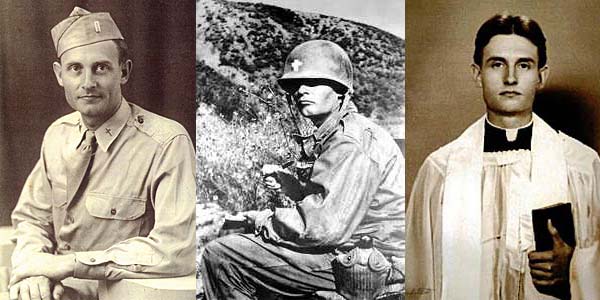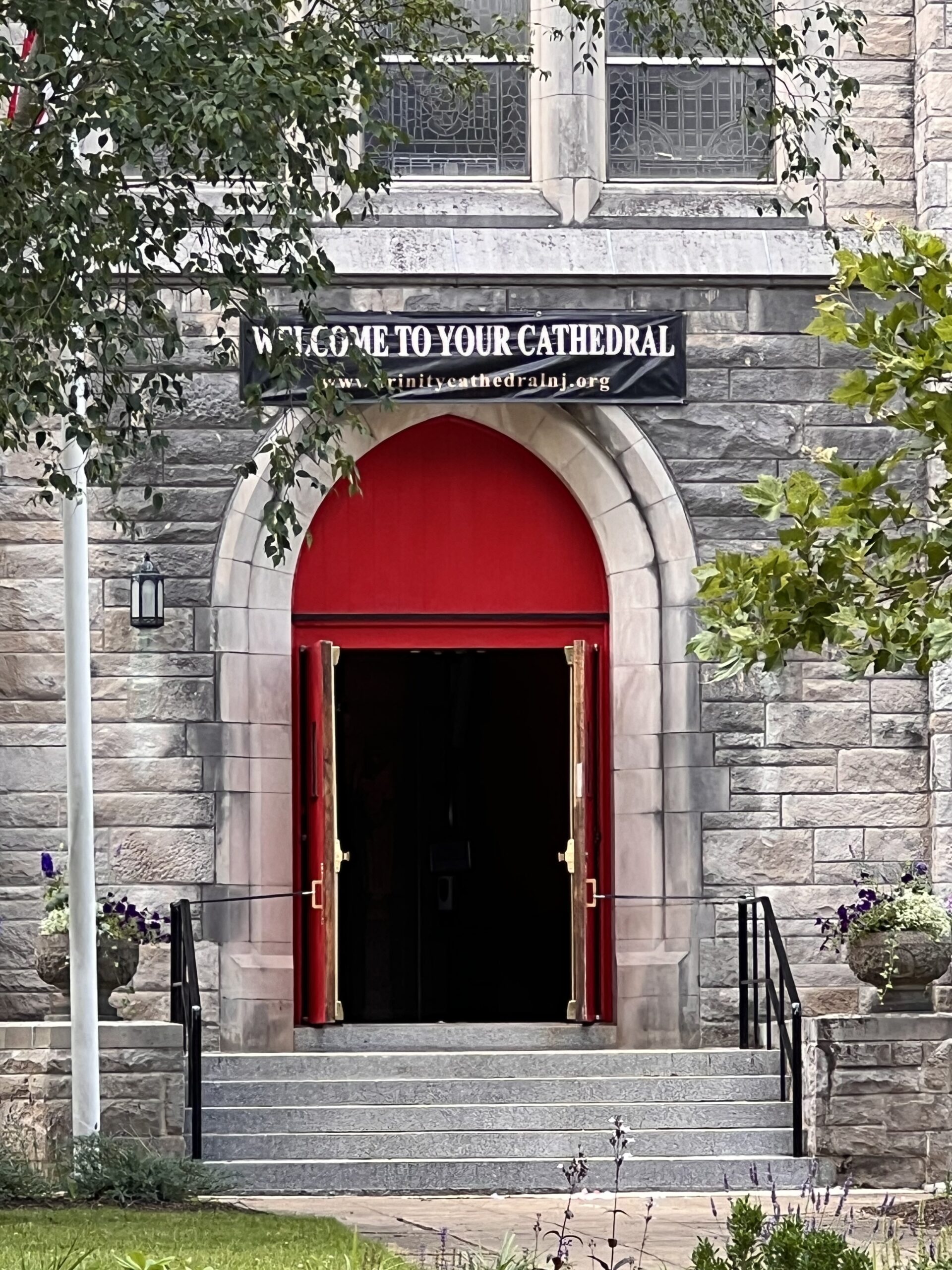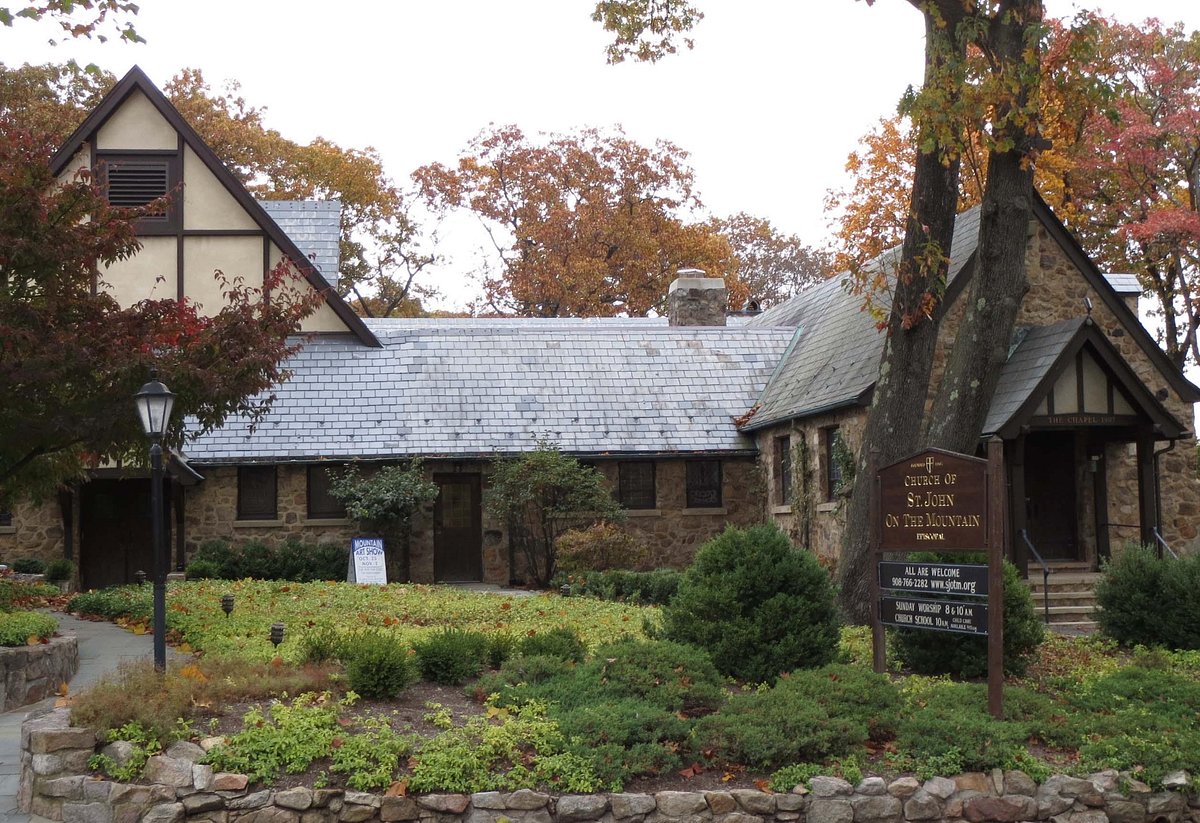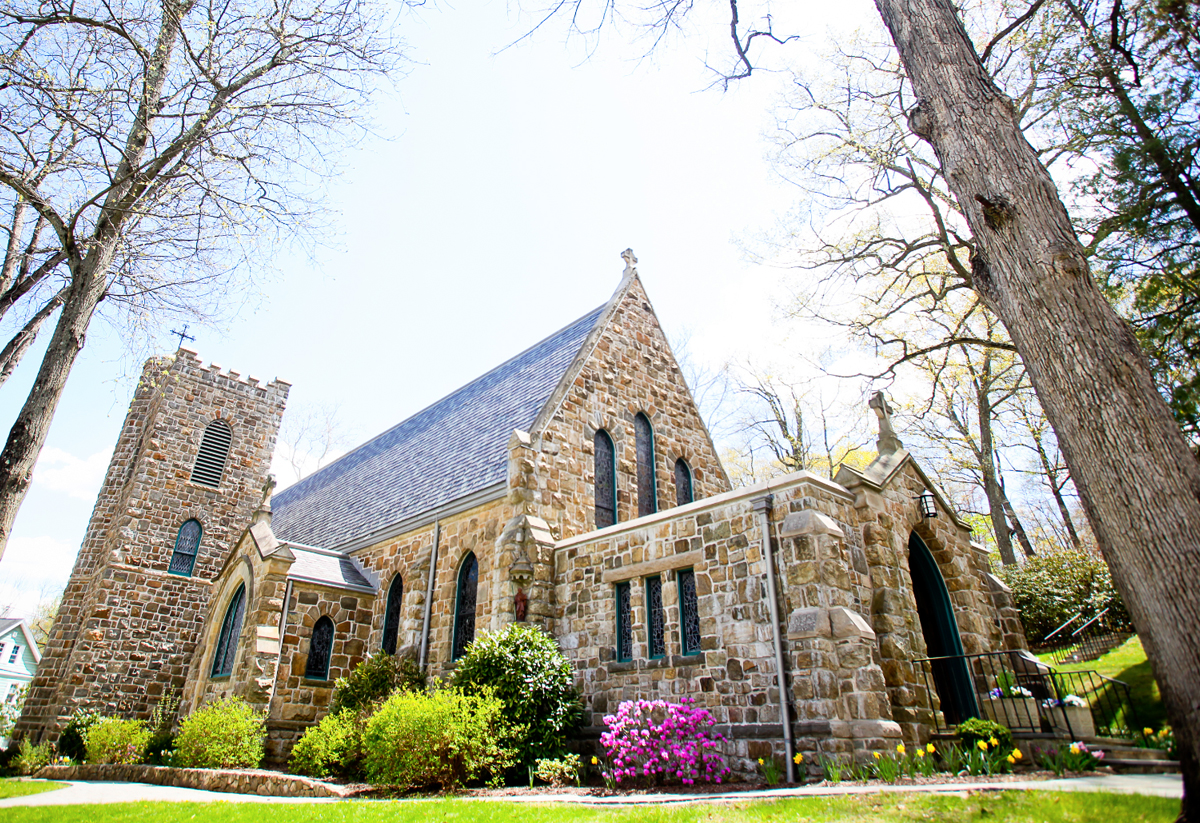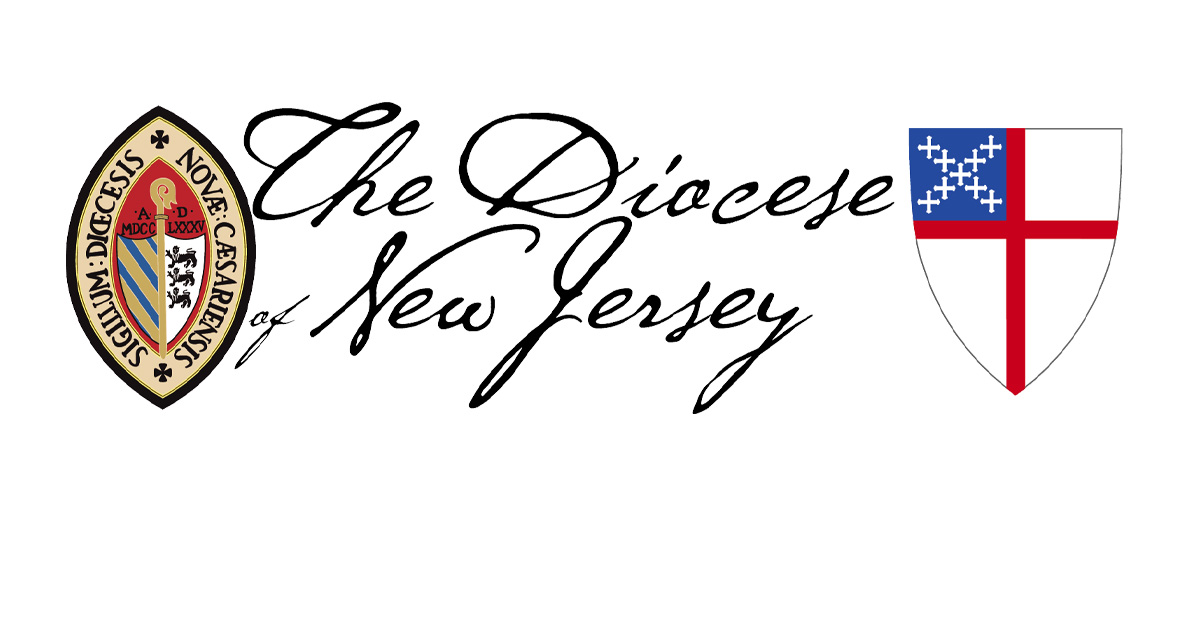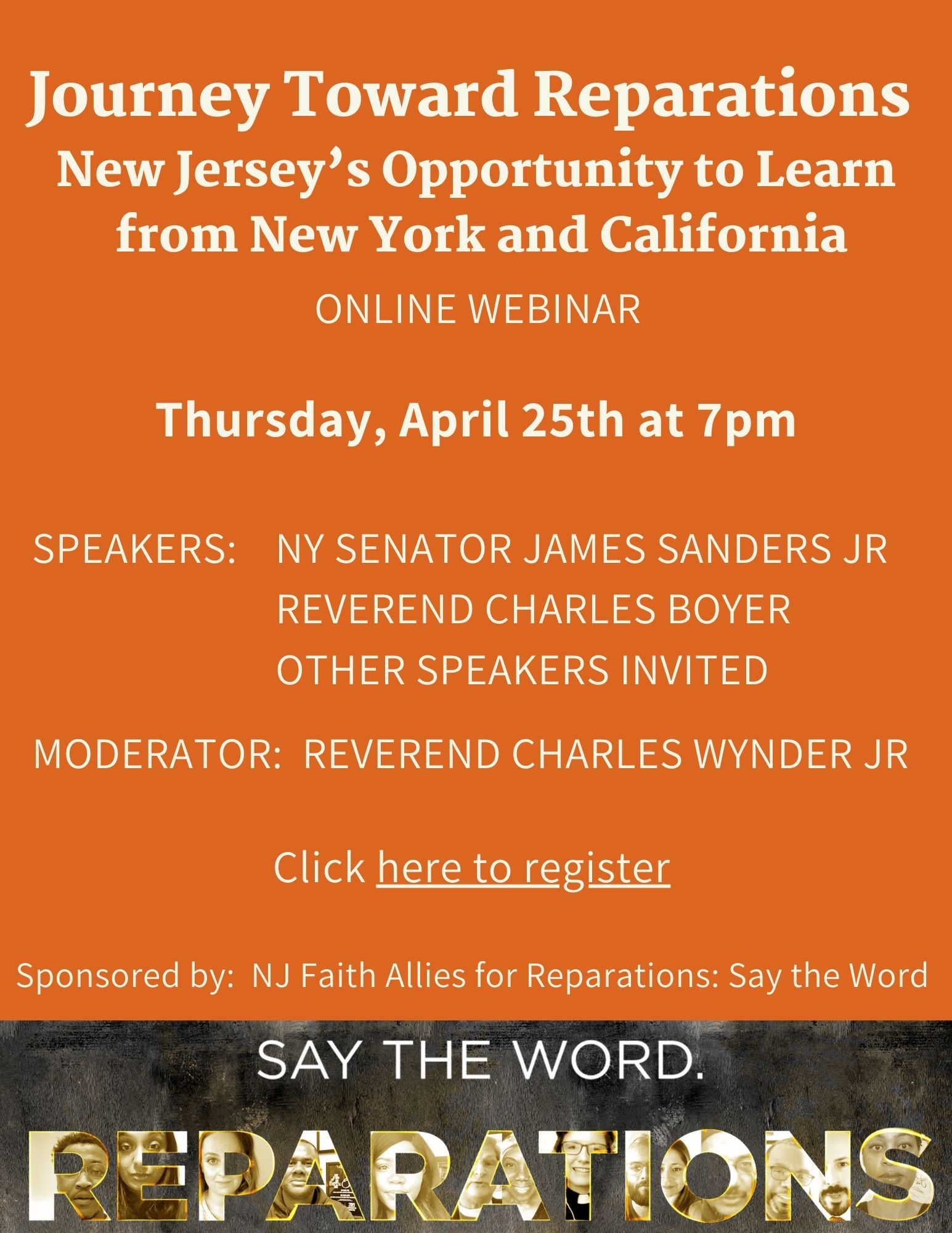Dear Clergy and Laity of the Diocese of New Jersey,
No one has greater love than this, to lay down one’s life for one’s friends
John 15:13
This coming Sunday, May 30, is Trinity Sunday. It’s the only Sunday of the Church Year designated to honor a doctrine of the Church rather than an event in the life of our Lord (e.g. The Feast of the Transfiguration of Our Lord) or a life, or event in the life of, a Saint (e.g. The Confession of Saint Peter).
As a child growing up in The Episcopal Church using the 1928 Book of Common Prayer, I remember that the Sundays following Trinity Sunday were numbered and designated from Trinity Sunday. With the liturgical reforms that led to the Book of Common Prayer 1979, the Church returned to the more ancient practice of numbering the Sundays of so-called “ordinary time” after Pentecost Sunday, which is our custom today.
On the one hand, the doctrine of the Trinity seems simple: we believe in God as One in Three and Three in One: Father, Son and Holy Spirit. On the other hand, the Doctrine of the Trinity is complex, drawing us into Ancient Greek philosophical terms and understandings. If you want to consider how complex it is, try deciphering The Creed of Saint Athanasius which can be found among the Historical Documents in the back of the Book of Common Prayer 1979 (p. 854).
Still, our understanding and language of God as Trinity is something built into our Christian identity. In his Church Dogmatics, Karl Barth observed, “It is the doctrine of the Trinity which fundamentally distinguishes the Christian doctrine of God as Christian.”
Today, rather than engaging the Trinity as an abstract conception of God, some theologians give greater consideration to a “relational” understanding. One of these theologians is English Baptist Professor of Theology and Novelist Paul Fiddes who explores this idea of “relationship” within God and then extends it to God’s creation and especially God’s human creation and our “participation in God in our experience.”1 He observes, “A vision of God as an event of relations alerts us to the reality that there are movements richer and deeper than our own relations.”2 Fides writes of the practice of intercessory prayer, when we engage in a participatory relationship with God by being pulled into a “mutual zone of love and support” for another.3 He also speaks of situations of suffering and understanding the reality that “God suffers with us.”4 He writes:
We discover that we have become part of the story of Another, where even a cross can acquire meaning. We become aware of a vast movement of protest against suffering and evil in creation that comes from the heart of the Creator, in which we can be swept up and empowered.5
Our life in Christ is inherently Trinitarian and draws us into relationship with all three persons of the Trinity who give us life. It is the Holy Spirit in us, that calls us to the imitation of Christ in our own lives and draws us more deeply into the love of the Father, source of life and love.
Monday is Memorial Day, a day in which we, as a Nation, are called to remember those who have died in service to this country in times of war and peace.
70 years ago, Emil Kapaun died as a Prisoner of War in North Korea. Robert Ellsberg tells Kapaun’s story in his book Blessed Among Us: Day by Day with Saintly Witnesses.6
A priest and Army Chaplain from Wichita, Kansas, who had served in World War II, Kapaun was deployed to Korea in 1950 along with the Eighth Cavalry Division, Third Battalion. Ellsberg writes, “From the time he arrived, he shared every danger with the troops, often rescuing wounded soldiers under fire, taking his turn digging latrines.”7
His unit was overrun by more than 20,000 Chinese forces on the feast of All Soul’s, November 2. Another source reports that during the battle, Kapaun rescued more than 40 wounded. As the unit retreated, Kapaun and an army doctor volunteered to remain behind with the 800 wounded and were captured as a result. Ellsberg reports, “At great risk, he intervened when their captors prepared to execute the prisoners. Instead the were marched eighty-seven miles to a North Korean prison camp.”8
Subjected to inhumane conditions of the prison camp and the raw weather of North Korea in winter, Kapaun was a spiritual leader to his fellow soldiers, who were dying from malnutrition, disease and extreme cold at a rate of up to two dozen a day.
Eventually he himself succumbed to pneumonia and dysentery and died on May 23, 1951. He was posthumously awarded the Congressional Medal of Honor and is reported to be the most decorated Chaplain in United States history. Wikipedia reports, “he was one of twelve chaplains to die in Korea. Four U.S. Army chaplains were taken prisoner in 1950, all of whom died while in captivity.”9
As we approach both Trinity Sunday and Memorial Day, it strikes me that the life of Captain Emil Joseph Kapaun, Chaplain, United States Army, Priest of Christ’s Church, knew as fully as anyone what it meant to participate in God’s life, God’s suffering and God’s love, that is, in the “relational Trinity.” In this, the doctrine comes alive.
No one has greater love than this, to lay down one’s life for one’s friends. Jesus said to his disciples.
Emil Joseph Kapaun understood and displayed this great, divine, love. This Trinity Sunday, this Memorial Day Weekend, I will be thinking of him, giving thanks for his life and that of so many others who have shown the same kind of sacrificial love in our nation’s history. I will also consider the wonder of this Trinitarian God who is always drawing us into divine love.
May God the Father, God the Son and God the Holy Spirit bless you and keep you.
Faithfully in Christ,

The Right Reverend William H. Stokes, D.D.
12th Bishop of New Jersey

